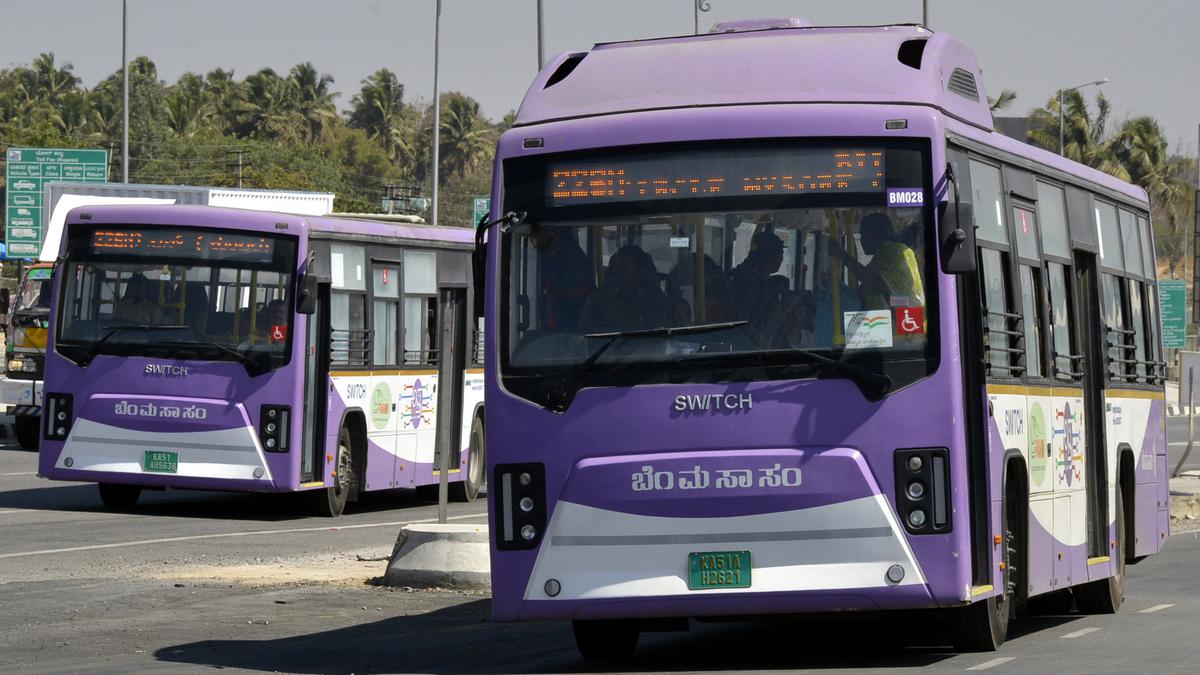
CNG buses: Cheaper than electric, but are they really an option for BMTC? Premium
The Hindu
Mounting vehicular pollution in Bengaluru has intensified demands to accelerate the ‘electric’ switch to green mobility. But the costly transition has been slow and unsteady. Why has the relatively cheaper Compressed Natural Gas (CNG) failed to take off as an alternative, fuelling both BMTC buses and private, personal vehicles?
Mounting vehicular pollution in Bengaluru has intensified demands to accelerate the ‘electric’ switch to green mobility. But the costly transition has been slow and unsteady. Why has the relatively cheaper Compressed Natural Gas (CNG) failed to take off as an alternative, fuelling both BMTC buses and private, personal vehicles?
Consider this: By 2018, the Gas Authority of India Limited (GAIL) had set up three CNG stations inside the BMTC depots in Hennur, Sumanahalli and Peenya. But they were never used since the transport corporation did not acquire any bus fuelled by CNG. The costly retrofitting of existing buses was out of question.
A GAIL India spokesperson informs that currently, over 35,000 CNG-run vehicles are registered in Bengaluru. These include autorickshaws, cars, light and heavy commercial vehicles. This figure stood at 8,000 in October 2021. Yet, the numbers are only a fraction of the city’s total vehicular population estimated to be well over 1.03 crore.
To accelerate adoption of the cleaner fuel in Bengaluru urban and rural districts, GAIL had launched a special scheme in 2021. It was offered to any individual or organisation buying a new car, autorickshaw, taxi, LCV, HCV or those keen to convert their existing vehicles to CNG. Customers were offered a prepaid CNG fuel card priced at ₹14,000 to ₹25,000. These could be used to fill fuel for free at any of GAIL’s CNG stations in the city.
Yet, the big shift has not happened so far and the narrative is driven by electric vehicles. This, despite the fact that BMTC finds acquiring e-buses prohibitively expensive at almost ₹2 crore per vehicle. At last count, the transport corporation is all set to procure 921 low-floor e-buses, rolling out batches of 100 each month from July-end.
But Vinay Sreenivasa from the Bengaluru Bus Prayanikara Vedike questions the very need for BMTC to acquire electric or CNG buses. “BMTC is moving towards BS6 standard, and are phasing out older buses. If you compare diesel BS6 and CNG, there is not much of a difference. So, why should a public transport utility spend so much on retrofitting buses?” he asks.
Electric buses too are an issue, feels Vinay. “EV technology has not stabilised yet. And till it does, I don’t see why BMTC should be burdened with running it. It is too costly. You have to do an overall cost benefit and life cycle analysis for electric / CNG buses. That is the scientific way to look at it. How much will BMTC have to spend? It is not just about emission at the bus level. Without these questions being answered, why should BMTC move to CNG?”





















 Run 3 Space | Play Space Running Game
Run 3 Space | Play Space Running Game Traffic Jam 3D | Online Racing Game
Traffic Jam 3D | Online Racing Game Duck Hunt | Play Old Classic Game
Duck Hunt | Play Old Classic Game











